Taipei's Baoan Temple (保安宮) has long been at the forefront of efforts to give traditional Taiwanese culture national and international relevance. The temple itself is one of the finest pieces of traditional architecture to be found in Taiwan, and its restoration has earned it plaudits from around the world. Increasingly important in the Baoan Temple's calendar of annual events is the Baosheng Cultural Festival (保生文化祭), which officially opens today and will continue until June 8.
Many of the events that make up this two-month festival have roots going back to the temple's founding back in 1742. One of the highlights of the festival is the "clan sponsored" opera and other performances. Nineteen troupes will be performing over the two-month period, offering a rich selection of Taiwanese-style gezai opera from professional and semi-professional groups. It is a chance for local aficionados to enjoy performances from troupes based in central and southern Taiwan, who, given financial constraints, rarely make it up north.
This item, which has its derivation from a time when performances for the spirits were sponsored by local families to show their piety, can be found in most temple celebrations. In the case of the Baosheng Cultural Festival, the difference is in scope and the quality of the troupes involved, including a number who perform regularly at national venues.
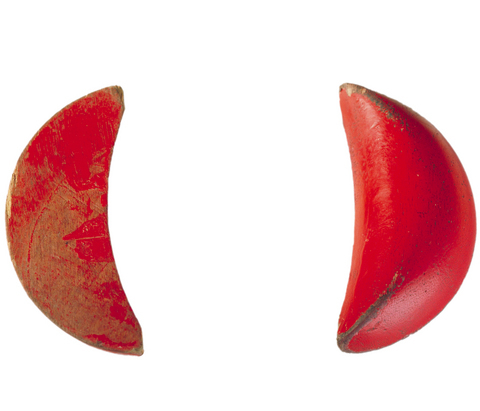
Speaking at a press conference announcing the event, Hsin Wan-chiao (辛晚教), a professor at Taipei University, said that one of Baoan Temple's great achievements was providing events at which the ubiquitous dictum of "love Taiwan" could be practiced. He went on to underline the fact that while Baoan Temple was not necessarily doing anything that other temples weren't, it was trying to do them better and was making them more accessible to a younger generation.
Local pride is one thing, but the ability to express it in a way that is accessible to the wider public -- and let's face it, popular religious culture in Taiwan is a mystery to many who have lived here all their lives -- is quite an achievement.
This is partly because the administrators of the Bao-an Temple, led by Liao Wu-chih (廖武治), have a strong sense of tradition, and so even as they bring traditional temple life into the 21st century, they also see their role as preserving the good things of the past. The most notable achievement in this regard is Baoan Temple's honorable mention at the UNESCO Asia-Pacific Heritage Award in 2003 for its ambitious restoration project.
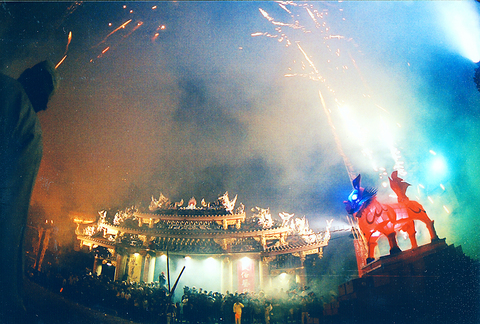
Much effort has also been put into recreating ancient religious rituals, many of which have been corrupted through ignorance over the centuries. The release of the fire-lion, which will take place next Friday, is a case in point. The lion is made totally of paper, and though it is eventually destined for the flames, the intricately sculpted figure is a work of art -- an art that religious foundations such as the Baoan Temple are trying to keep alive.
For Liao, religion should be coupled with cultural and community activities. The festival includes drawing and photographyc competitions, guided walks of the temple and its rich store of artistic treasures, stands offering voluntary services from local doctors, and the inevitable canopy of stalls offering local produce and craft.
Obviously while lectures on religious belief and even the guided tours of the temple will not be accessible to non-Chinese speakers, much information on the Baoan Temple, its origins and its restoration, is now available in English.
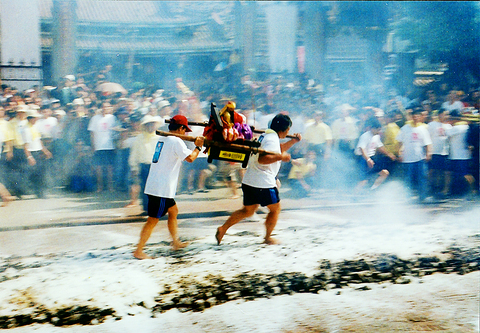
For the cultural festival, pamphlets in English and Japanese have been produced as part of an effort to reach out to a more international audience, and judging from the number of Japanese visitors at last year's event, this effort has not been without effect.
See the list (center) for a basic rundown of events or visit the Baoan Temple Web site for detailed information on the cultural festival at www.paoan.org.tw. The Baoan Temple is located at 61 Hami Street, Taipei (台北市哈密街61號).
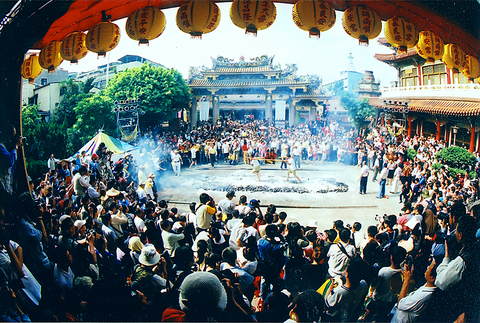
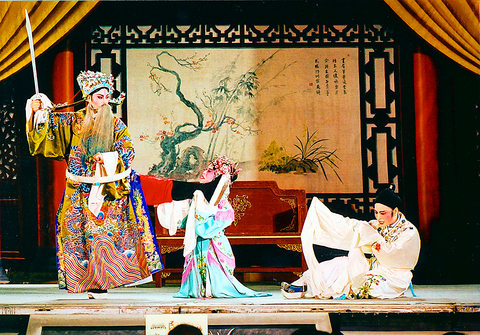
PHOTOS COURTESY OF BAOAN TEMPLE

Under pressure, President William Lai (賴清德) has enacted his first cabinet reshuffle. Whether it will be enough to staunch the bleeding remains to be seen. Cabinet members in the Executive Yuan almost always end up as sacrificial lambs, especially those appointed early in a president’s term. When presidents are under pressure, the cabinet is reshuffled. This is not unique to any party or president; this is the custom. This is the case in many democracies, especially parliamentary ones. In Taiwan, constitutionally the president presides over the heads of the five branches of government, each of which is confusingly translated as “president”

Sept. 1 to Sept. 7 In 1899, Kozaburo Hirai became the first documented Japanese to wed a Taiwanese under colonial rule. The soldier was partly motivated by the government’s policy of assimilating the Taiwanese population through intermarriage. While his friends and family disapproved and even mocked him, the marriage endured. By 1930, when his story appeared in Tales of Virtuous Deeds in Taiwan, Hirai had settled in his wife’s rural Changhua hometown, farming the land and integrating into local society. Similarly, Aiko Fujii, who married into the prominent Wufeng Lin Family (霧峰林家) in 1927, quickly learned Hoklo (commonly known as Taiwanese) and

The Venice Film Festival kicked off with the world premiere of Paolo Sorrentino’s La Grazia Wednesday night on the Lido. The opening ceremony of the festival also saw Francis Ford Coppola presenting filmmaker Werner Herzog with a lifetime achievement prize. The 82nd edition of the glamorous international film festival is playing host to many Hollywood stars, including George Clooney, Julia Roberts and Dwayne Johnson, and famed auteurs, from Guillermo del Toro to Kathryn Bigelow, who all have films debuting over the next 10 days. The conflict in Gaza has also already been an everpresent topic both outside the festival’s walls, where

The low voter turnout for the referendum on Aug. 23 shows that many Taiwanese are apathetic about nuclear energy, but there are long-term energy stakes involved that the public needs to grasp Taiwan faces an energy trilemma: soaring AI-driven demand, pressure to cut carbon and reliance on fragile fuel imports. But the nuclear referendum on Aug. 23 showed how little this registered with voters, many of whom neither see the long game nor grasp the stakes. Volunteer referendum worker Vivian Chen (陳薇安) put it bluntly: “I’ve seen many people asking what they’re voting for when they arrive to vote. They cast their vote without even doing any research.” Imagine Taiwanese voters invited to a poker table. The bet looked simple — yes or no — yet most never showed. More than two-thirds of those